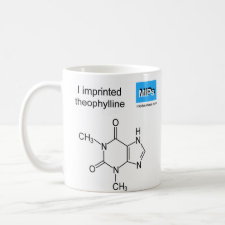
Authors: Yoshimi Y, Ohdaira R, Iiyama C, Sakai K
Article Title: "Gate effect" of thin layer of molecularly-imprinted poly (methacrylic acid-co-ethyleneglycol dimethacrylate).
Publication date: 2001
Journal: Sensors and Actuators B: Chemical
Volume: 73
Issue: (1)
Page numbers: 49-53.
DOI: 10.1016/S0925-4005(00)00671-7
Alternative URL: http://144.206.159.178/ft/944/32164/559308.pdf
Abstract: Molecular imprinting is a new technology for the synthesis of polymers with antibody-like specificity, which art: potentially useful in sensing or separation devices. Here, we report that a thin layer of molecularly-imprinted copolymer exhibits an increase in its diffusive permeability in the presence of its template. A thin layer of molecularly-imprinted poly(methacrylic acid-co-ethyleneglycol dimethacrylate) of theophylline was observed to form on the surface of electrically conductive indium-tin oxide (ITO) him. Cyclic voltammetry of ferrocyanide was performed using the copolymer- grafted ITO as a working electrode in the presence and absence of the template. The presence of the template was found to enhance the anodic current remarkably, which suggests that the diffusive permeability of the thin layer of the molecularly- imprinted polymer (MIP) is sensitive to the presence of its template molecule. This idea is supported by atomic force microscopy (AFM) in which the surface porosity of the layer of the MIP was observed to increased in the presence of its template. We conclude that the structure and diffusive permeability of a thin layer of molecularly-imprinted poly(methacrylic acid-co-ethyleneglycol dimethacrylate) enables this system to be used as a sensor for a given template, (C) 2001 Elsevier Science B.V. All rights reserved
Template and target information: theophylline



Join the Society for Molecular Imprinting

New items RSS feed
Sign-up for e-mail updates:
Choose between receiving an occasional newsletter or more frequent e-mail alerts.
Click here to go to the sign-up page.
Is your name elemental or peptidic? Enter your name and find out by clicking either of the buttons below!
Other products you may like:
 MIPdatabase
MIPdatabase









